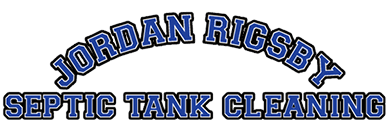Lift Station Services
Free Estimates | Over 21 Years of Experience | Same-Day Services
Free Estimates
Over 21 Years of Experience
Same-Day Services
Top-Notch Lift Station Solutions
Lift Station Services We Offer
- Preventative maintenance
- Monthly scheduling
- Inspections
- Diagnosis
Check Out the Lift Station Solutions We Offer
- Pump service and installation
- Preventative maintenance
- Control panel service and replacement
- Septic tank replacement pumps
- Submersible pump stations
Service Contracts
Let the experts at Jordan Rigsby's Septic Tank Cleaning keep your lift station maintained according to industry standards. Our skilled technicians will routinely monitor your lift station functions to find out if there is any problem with your pump and save you from costly repairs. We will keep your control floats free of grease and debris so that it functions properly.
Lift stations lift or raise wastewater from a lower elevation to a higher elevation. The term “lift station” usually refers to a wastewater facility with a relatively short discharge line to a downstream gravity sewer. A “pump station” is a similar type of facility that discharges into a force main.
Hire our technicians for routine inspections and preventative maintenance to avoid costly repair bills, eliminate spills, and prevent property losses. Have a look at the suggestions below to ensure fewer breakdowns and problems:
- Wet wells should be pumped out and cleaned at least twice a year, or more often if necessary, to prevent solids and grease build-up. Build-up of solids can create odors and damages the pump.
- Inspection of pumps (submersible and dry) and impeller should be performed quarterly.
- Cleaning and inspections of floats should be done four times a year to ensure proper functioning. The buildup of grease prevents floats from working smoothly.
Things to be Kept Out of a Sewage Grinder Pump System
- Ashes such as from a fireplace
- Baby wipes
- Cat litter
- Chemicals and drain cleaners: some of these can corrode sewage grinder pump parts causing costly damage
- Cooking oil, fat, grease, lard
- Cigarettes, cigarette butts, and filters
- Condoms
- Cotton swabs or wipes
- Dental floss
- Diapers
- Explosive or combustible liquids or materials
- Glass fragments or debris
- Gravel or stones such as from an aquarium
- Hair
- Metal fragments or scraps
- Plastic toys, scraps, fragments, and plastic-stemmed Q-tips
- Q-tips of any sort
- Rubber gloves
- Sanitary napkins and tampons


Share On: